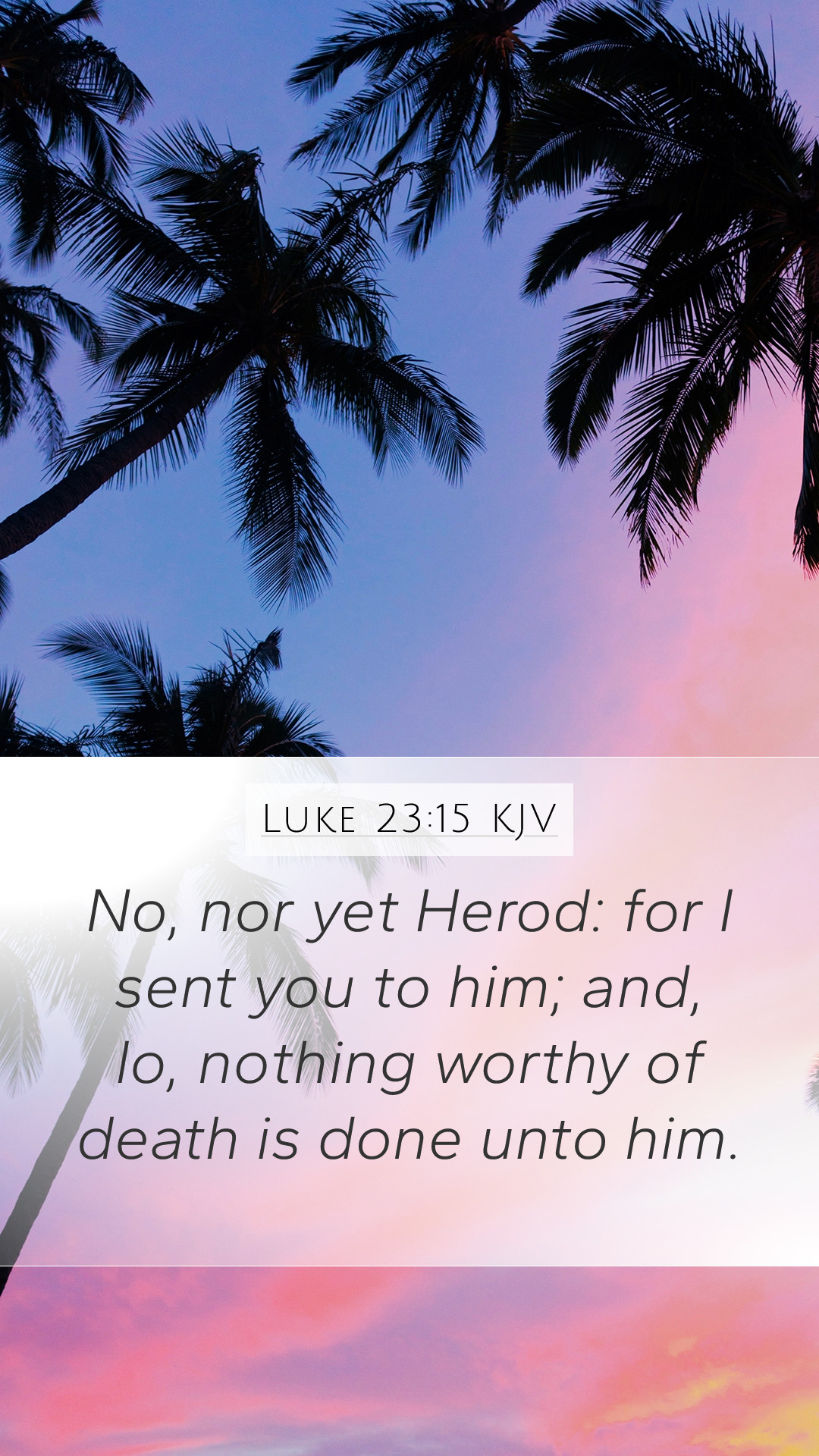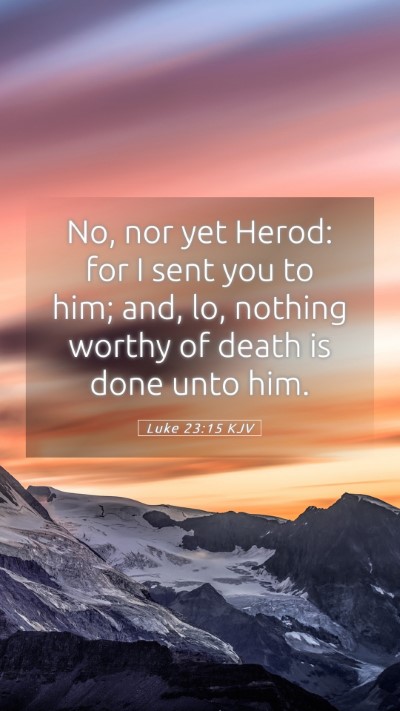Bible Verse Commentary: Luke 23:15
Verse: "No, neither did Herod: for he sent him back to us; and, lo, nothing worthy of death is done unto him." - Luke 23:15 (KJV)
Understanding the Context
The account of Jesus’ trial presents a crucial moment in the New Testament. To grasp the meaning of Bible verses, it is critical to understand the political and social dynamics of this time. Herod Antipas, at this time, was the tetrarch of Galilee and a significant figure in the context of Jesus' ministry.
This verse appears within the narrative of Jesus’ appearance before Herod after his trial before Pilate, illustrating the failure of both political figures to perceive Jesus for who he truly was - the Messiah. Their inability to see beyond their own interests is a theme explored in discussions of Biblical exegesis.
Interpretations from Commentaries
- Matthew Henry:
Henry emphasizes the injustice suffered by Jesus and highlights how even Herod, a ruler, found no fault in Him. This lack of guilt illustrates the profound innocence of Jesus amidst wrongful accusations, which is a leitmotif in the larger narrative of His passion.
- Albert Barnes:
Barnes notes that Herod’s examination of Jesus was marked by indifference; he sought to entertain himself by seeing miracles rather than seeking truth. This forms a clear contrast to how sincere seekers approach Jesus and His teachings, an important factor for Bible study groups.
- Adam Clarke:
Clarke brings attention to the historical context and the relationship between Herod and Pilate. Their collaboration in rejecting Jesus serves as a warning about the moral decay of leadership, something applicable in many discussions about Bible study topics today.
Insights on Application
For many, this passage evokes questions about justice and moral accountability. Modern believers may reflect on it in their own contexts, asking how they respond to societal pressures and expectations. This is a common theme in Online Bible study settings, where participants explore how to apply Scripture to daily life.
- How do we confront injustice in our own communities?
- In what ways might we unknowingly participate in the rejection of truth?
- What can we learn about leadership and accountability from Herod and Pilate’s behavior?
Cross References for Further Study
- John 18:38: “Pilate saith unto him, What is truth?” - Here, we see the philosophical inquiry into truth that mirrors the indifference noted in Luke 23:15.
- Matthew 27:24-26: Pilate’s decision to wash his hands of the matter highlights the ongoing transfer of responsibility concerning justice.
- Isaiah 53:7: “He was oppressed, and he was afflicted, yet he opened not his mouth.” - This prophecy finds fulfillment in Jesus' silence before His accusers.
Conclusion
In summary, Luke 23:15 serves as a profound reminder of the dangers of injustice, the complexity of leadership, and the importance of seeking truth. For those engaged in Bible study insights and Bible study lessons, it encourages a deep and sincere look within oneself and the communities we inhabit.


